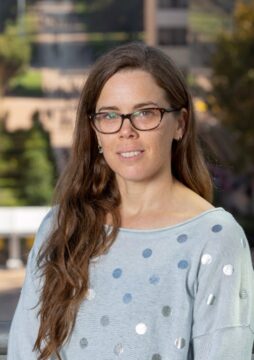Venue: Centre Broca
Invited by Shauna Parkes (INCIA)

Kelly Clemens
Senior Lecturer and Scientia Fellow
University of New South Wales (Australia)
Title
‘Epigenetic mechanisms underlying the persistence of nicotine memories’.
Abstract
Smoking continues to be a major health risk and globally is the leading cause of preventable illness and death. Although nicotine has relatively weak reinforcing efficacy, it is one of the hardest drugs to quit. This is linked to the persistence of cravings many weeks, month or years after cessation, which render the user susceptible to relapse over extended periods of time. How nicotine can enable the persistence of these drug memories is poorly understood. Here I discuss the role of epigenetic changes in the persistence of nicotine-seeking, and whether targeting these processes may offer a new avenue for therapeutic intervention.
Bio
Dr. Kelly Clemens is a Senior Lecturer and Scientia Fellow in the School of Psychology at the University of New South Wales (UNSW, Sydney, Australia). She has studied at the University of Otago (New Zealand) and University of Sydney (Australia), with postdoctoral experience at the Université de Bordeaux (France) and Macquarie University (Sydney). In 2012, she established her own laboratory at UNSW.
Nathan Holmes
Senior Scientia Lecturer and ARC Future Fellow
University of New South Wales (Australia)
Title
‘How does the brain integrate sensory and emotional information?’
Abstract:
Animals and people integrate information acquired at different times when responding to novel situations or problems. For example, after being attacked by a boy at school, a child may become fearful of places where the boy had been previously encountered; and after learning the relationship between a particular sound and danger, an animal may become fearful of places where it had previously heard that sound. In the laboratory, this type of integration can be studied using sensory preconditioning protocols in which animals (rats) integrate innocuous sensory information acquired at time 1 (e.g., a sound is paired with a light) with emotional information acquired at time 2 (e.g., the light is paired with brief but aversive foot shock) and, thus, express fear to a stimulus that was never paired with danger at time 3 (e.g., the sound). The project that I will describe uses sensory preconditioning protocols to examine how the brain integrates sensory and emotional information. Specifically, I will present a series of experiments which show that the way in which rats integrate sensory and emotional information depends on characteristics of the stimuli to which they are exposed (e.g., their familiarity) and has consequences for learning about the danger. These experiments are part of a larger research program which aims to advance our understanding of how fear is processed in the mammalian brain. The findings will be discussed with respect to this program and different theories of information processing.
Bio:
Dr. Nathan Holmes is an Australian Research Council Future Fellow and Senior Scientia Lecturer in the School of Psychology at the University of New South Wales. He is interested in how the mammalian brain processes different types of information; and how motivational states, like fear, change the way the brain processes information. Specifically, Nathan examines how fear influences the processing of innocuous information (e.g., the relation between a sound and a light); how fear spreads across a network of linked memories; and how an established fear memory is updated to include new information. The aim of his research is to develop a theory of how fear influences information processing in the brain, with a particular focus on cells and circuits of the medial temporal lobe.


